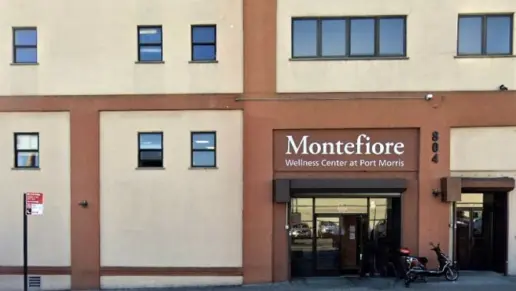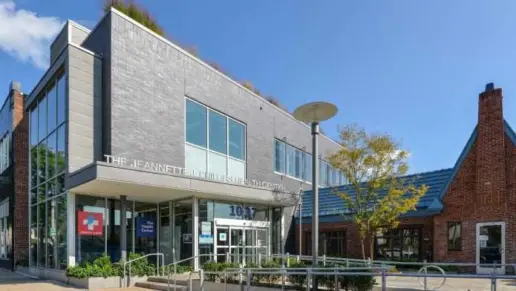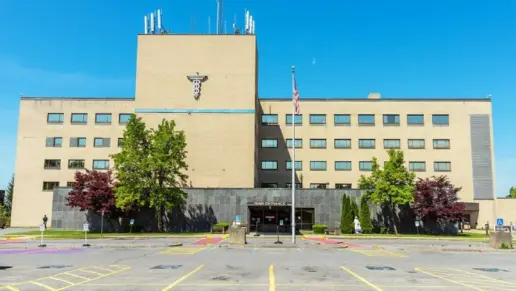About Oceanside Counseling Center
Treatment for substance use disorders is offered at the Oceanside Counseling Center in Oceanside, New York. Men, women and children are all served by their outpatient program which helps families struggling with addiction. They begin with quick, tailored assessments and treatment recommendations based on your needs.
Their customized treatment plans offer a comprehensive range of services including assessments, evaluations and referrals. Here, they offer a wide variety of group therapies including women’s groups, recovery groups and dual diagnosis groups as well as relapse prevention groups and nicotine cessation groups. Additional resources for specialized support include workshops on anger management and parenting, adolescent groups and groups for members of the LGBTQ+ community.
They are in network with the majority of major insurance plans and accept Medicaid and Medicare so access to care is easier to manage. They offer a sliding scale fee based on your financial situation if you don’t have insurance. You can pay with cash, a personal check or a major credit card. Additionally, they are authorized by the New York State Department of Motor Vehicles to provide treatment to those accused of driving under the influence.
I also appreciate that they help people who are battling addiction and co-occurring mental health disorders. Their knowledgeable staff is committed to helping you on your path to recovery and includes psychiatric nurse practitioners, licensed clinical social workers, licensed mental health counselors and credentialed alcohol and substance abuse counselors.
Oceanside is a great place to begin your recovery journey. It’s a little over one hour away from Manhattan, so you’ll be close to lots of entertainment venues, retail shops and other attractions that can be great outlets for sober recreation. There are also lots of major hospitals and smaller healthcare facilities in the city, so you’ll be close to the care you need.
Rehab Score
Accepted Insurance
Other Forms of Payment
Medicaid is a state based program that helps lower-income individuals and families pay for healthcare. Medicaid covers addiction treatment so those enrolled can use their coverage to pay for rehab. When a program accepts Medicaid the client often pays very little or nothing out of their own pocket.
Private insurance refers to any kind of healthcare coverage that isn't from the state or federal government. This includes individual and family plans offered by an employer or purchased from the Insurance Marketplace. Every plan will have different requirements and out of pocket costs so be sure to get the full details before you start treatment.
Self-pay involves paying for treatment out of your own pocket. You can use savings or credit, get a personal loan, or receive help from family and friends to fund your treatment. If you don't have insurance or your insurance plan doesn't cover a specific program, self-pay can help ensure you still get the care you need.
Financial aid can take many forms. Centers may have grants or scholarships available to clients who meet eligibility requirements. Programs that receive SAMHSA grants may have financial aid available for those who need treatment as well. Grants and scholarships can help you pai for treatment without having to repay.
Sliding scale payments are based on a client's income and family size. The goal is to make treatment affordable to everyone. By taking these factors into account, addiction recovery care providers help ensure that your treatment does not become a financial burden to you or your family, eliminating one barrier to care.
Medicare is a federal program that provides health insurance for those 65 and older. It also serves people under 65 with chronic and disabling health challenges. To use Medicare for addiction treatment you need to find a program that accepts Medicare and is in network with your plan. Out of pocket costs and preauthorization requirements vary, so always check with your provider.
Military members, veterans, and eligible dependents have access to specific insurance programs that help them get the care they need. TRICARE and VA insurance can help you access low cost or no cost addiction and mental health treatment. Programs that accept military insurance often have targeted treatment focused on the unique challenges military members, veterans, and their families face.
Addiction Treatments
Levels of Care
Treatments
The goal of treatment for alcoholism is abstinence. Those with poor social support, poor motivation, or psychiatric disorders tend to relapse within a few years of treatment. For these people, success is measured by longer periods of abstinence, reduced use of alcohol, better health, and improved social functioning. Recovery and Maintenance are usually based on 12 step programs and AA meetings.
When you choose drug rehab in New York, you'll participate in a variety of treatments that are designed to help you live a drug-free lifestyle. Common methods of treatment include group, individual, and family counseling, medication management, nutrition, exercise, and management of co-occurring mental health disorders.
Many of those suffering from addiction also suffer from mental or emotional illnesses like schizophrenia, bipolar disorder, depression, or anxiety disorders. Rehab and other substance abuse facilities treating those with a dual diagnosis or co-occurring disorder administer psychiatric treatment to address the person's mental health issue in addition to drug and alcohol rehabilitation.
Opioid rehabs specialize in supporting those recovering from opioid addiction. They treat those suffering from addiction to illegal opioids like heroin, as well as prescription drugs like oxycodone. These centers typically combine both physical as well as mental and emotional support to help stop addiction. Physical support often includes medical detox and subsequent medical support (including medication), and mental support includes in-depth therapy to address the underlying causes of addiction.
Substance rehabs focus on helping individuals recover from substance abuse, including alcohol and drug addiction (both illegal and prescription drugs). They often include the opportunity to engage in both individual as well as group therapy.
Programs

Clinical Services
Group therapy is any therapeutic work that happens in a group (not one-on-one). There are a number of different group therapy modalities, including support groups, experiential therapy, psycho-education, and more. Group therapy involves treatment as well as processing interaction between group members.
Contact Information
71 Homecrest Court
Oceanside, NY 11572







